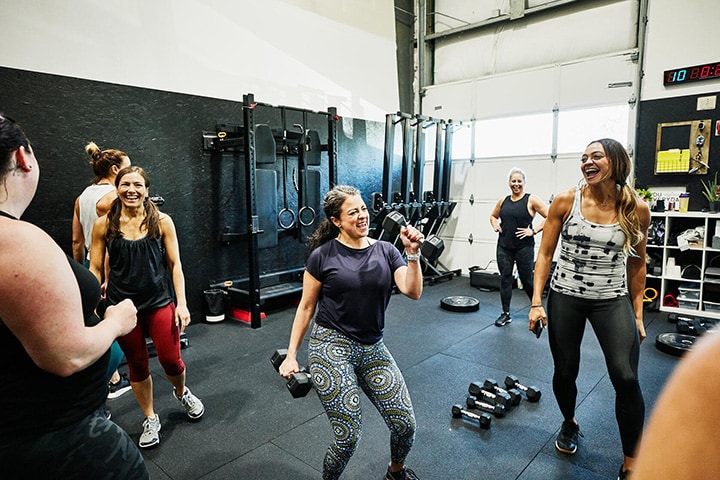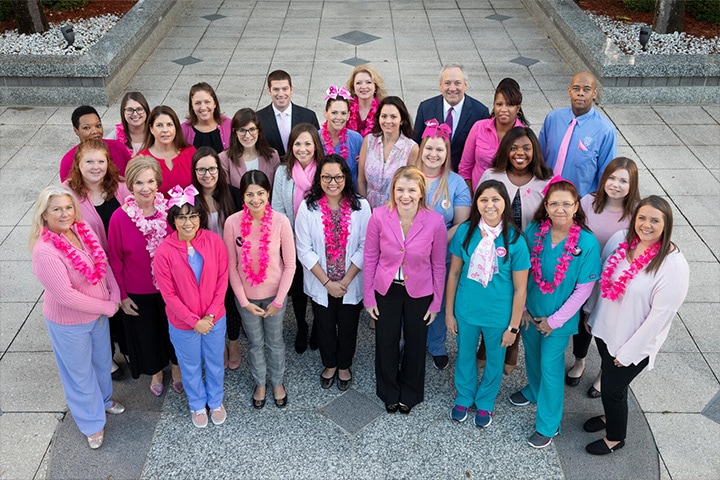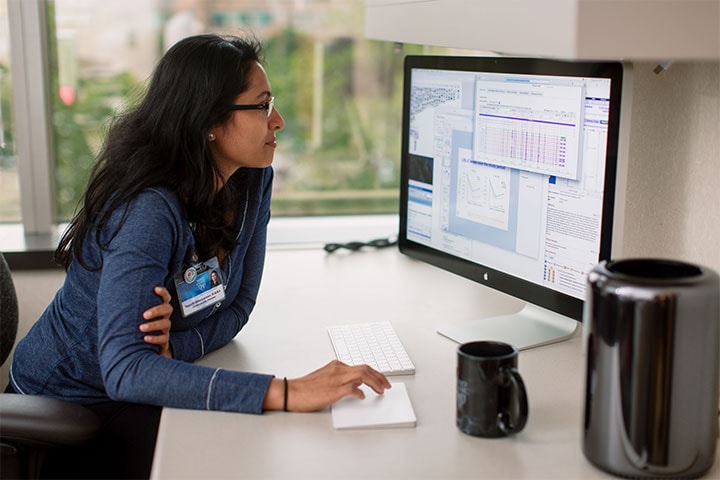Curriculum
/prod01/channel_2/media/mccms/content-assets/academics/residencies-and-fellowships/renal-transplant-fellowship-florida/curriculum/renal-transplant-refresh-3748587-0016-hero-tablet.jpg)
Clinical training
A key strength of the Renal Transplant Fellowship at Mayo Clinic's campus in Jacksonville, Florida, is your exposure to a large, wide-ranging population of kidney and pancreas and liver transplant recipients within a highly integrated, patient-centered clinical program. You train in inpatient, acute outpatient and long-term outpatient settings.
Throughout the year, you work closely with Mayo Clinic consultants in:
- Transplant nephrology
- Transplant surgery
- Transplant critical care
- Renal pathology
- Transplant infectious diseases
- Tissue typing and transfusion medicine
- Renal radiology
You also interact regularly with specialists in endocrinology, cardiology, dermatology and psychiatry who have focused expertise in the care of transplant recipients. In addition, you have opportunities to share the care of multitransplant recipients with members of the liver and heart-lung transplant groups.
Specific areas of clinical and didactic teaching are:
- Recipient evaluation and preparation for kidney and pancreas transplantation
- Evaluation of the potential living kidney donor
- The biologic basis of HLA and transplant rejection
- Methods of tissue typing, cross matching and alloantibody measurement, and the clinical application of these methods
- Pharmacology and clinical use of established and emerging immunosuppression for kidney and pancreas transplantation
- Evaluation and comparison of different combinations of immunosuppressive medication in kidney and pancreas transplantation
- Perioperative and early outpatient care of kidney and pancreas transplant recipients
- Recognition of surgical complications of kidney and pancreas transplantation
- Evaluation and management of acutely ill kidney or pancreas transplant recipients
- Diagnosis and management of infections in transplant recipients
- Long-term medical management of kidney and pancreas transplant recipients
- Diagnosis, pathogenesis and clinical management of renal allograft dysfunction
- The use of plasmapheresis, intravenous immunoglobulin and other techniques to lower or modify anti-HLA antibody in sensitized patients
- Allocation of deceased donor organs for transplantation
- Ethical considerations in organ transplantation
Call frequency
The call schedule varies by rotation but does not exceed, and will frequently be less than, one in four weeknights for any rotation. A small number of weekends during the year — while on the inpatient service only — are required. Mayo Clinic follows the recommendations of the Accreditation Council for Graduate Medical Education.
Moonlighting
You may moonlight with program director approval. Moonlighting activities may be scheduled only during outpatient rotations. Moonlighting should not interfere with the required learning and must not violate the work-hour rules of the Accreditation Council for Graduate Medical Education or visa regulations.
Evaluation
To ensure that you acquire adequate knowledge and develop the appropriate technical skills to meet program expectations, your performance is monitored carefully during the Renal Transplant Fellowship. You are formally evaluated by supervising faculty members on a regular basis and meet with the program director to review these evaluations. In addition, you regularly evaluate the faculty to confirm that your educational needs are being met.
Work/life balance
Fellows in the Renal Transplant Fellowship program have access to all that Mayo Clinic and Jacksonville, Florida, have to offer. We'll support you both inside and outside of Mayo Clinic's campus to promote wellness and ensure your work/life balance.
- Fitness centers
- Groups on campus
- Well-being
Fitness centers
 Mayo Clinic residents or fellows can experience 24/7 free access to the Bill Hewitt Employee Wellness Center — opened in the summer of 2024 and spans 6,700 square feet with modern cardio machines, weight machines, free weights, a studio for live classes, and includes showers and locker rooms for convenience.
Mayo Clinic residents or fellows can experience 24/7 free access to the Bill Hewitt Employee Wellness Center — opened in the summer of 2024 and spans 6,700 square feet with modern cardio machines, weight machines, free weights, a studio for live classes, and includes showers and locker rooms for convenience.
Additionally, residents or fellows at our three campuses get discounted membership fees to area gyms. In Jacksonville, Florida, residents and fellows can obtain an exclusive discount with the YMCA (several locations).
Groups on campus

Opportunities to join a variety of groups on campus provide regular social activities and can help enhance your training while connecting with a broad group of peers.
Trainees will have the opportunity to join a Mayo Employee Resource Group (MERG) at any time during their training program. Mayo Employee Resource Groups (MERGs) are employee-led affinity groups to promote belonging, increase cultural awareness, and foster an environment of respect and inclusivity. Any Mayo Clinic employee can join a group of interest and choose their level of involvement
Well-being
 The Office of Academic Support and Well-Being provides resources to promote academic, emotional, social, cognitive, financial, and physical well-being. Career and academic services include academic advising, peer tutoring, and accommodations for learners with disabilities or health conditions. Mental health services, counseling, interview practice, and a variety of enrichment sessions on topics like budgeting, resiliency, and stress and burn-out are also available through the Academic Support and Well-Being office.
The Office of Academic Support and Well-Being provides resources to promote academic, emotional, social, cognitive, financial, and physical well-being. Career and academic services include academic advising, peer tutoring, and accommodations for learners with disabilities or health conditions. Mental health services, counseling, interview practice, and a variety of enrichment sessions on topics like budgeting, resiliency, and stress and burn-out are also available through the Academic Support and Well-Being office.
/0x0:512x512/prod01/channel_2/media/mccms/content-assets/academics/residencies-and-fellowships/renal-transplant-fellowship-arizona/512X512-1321573_3536601_0003.jpg)
Video: I Am Mayo
2:54